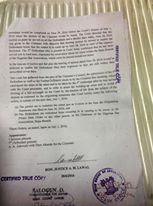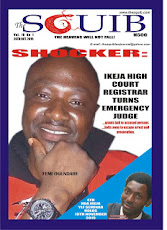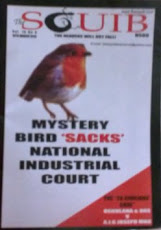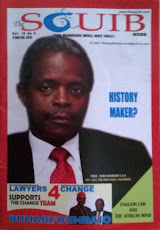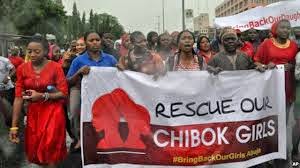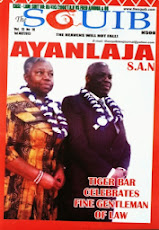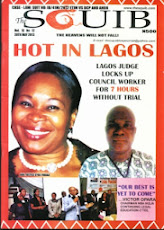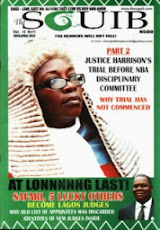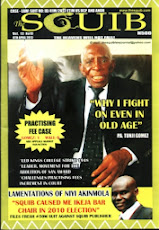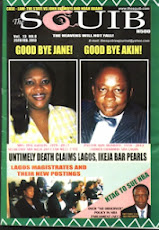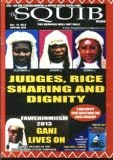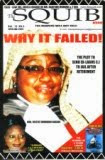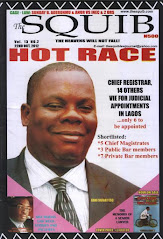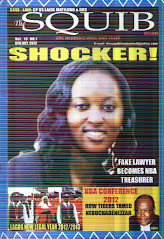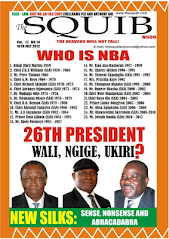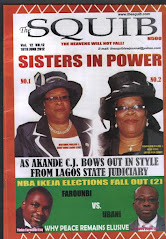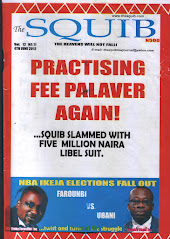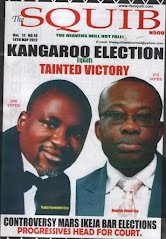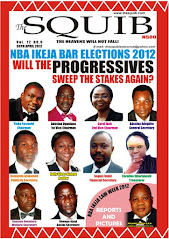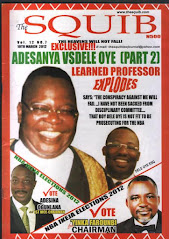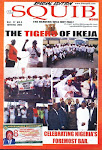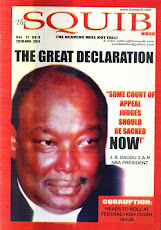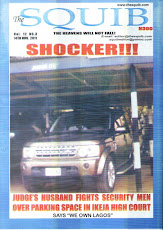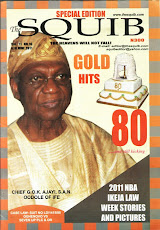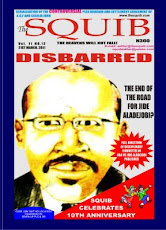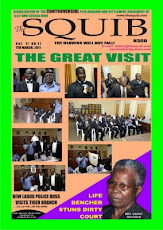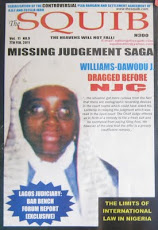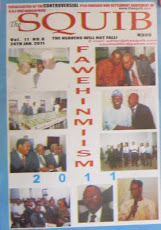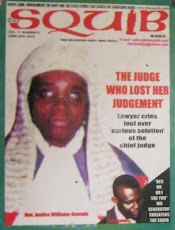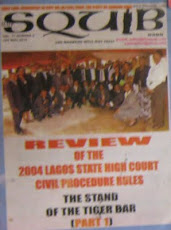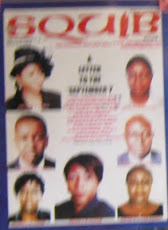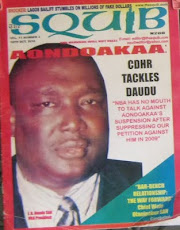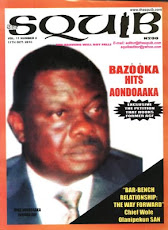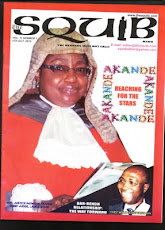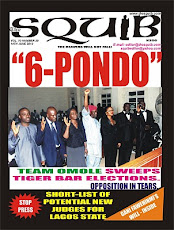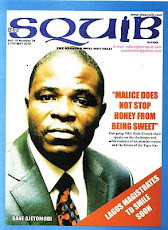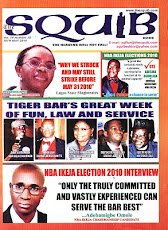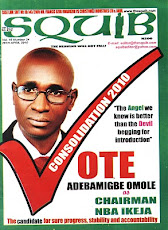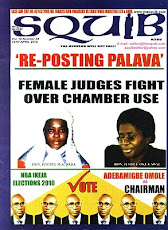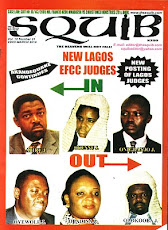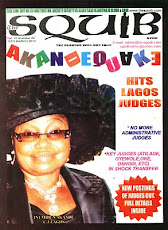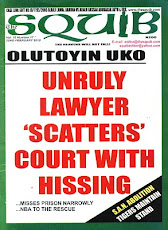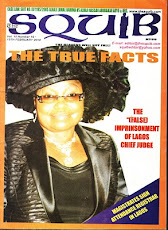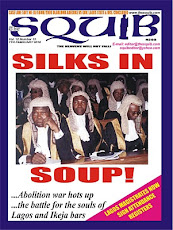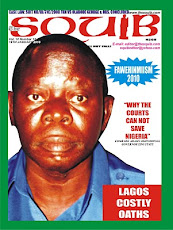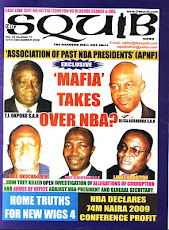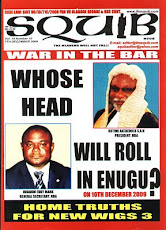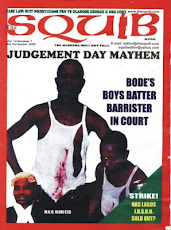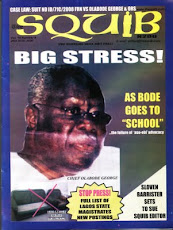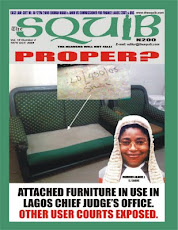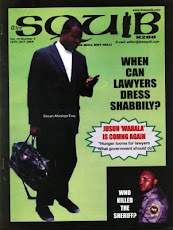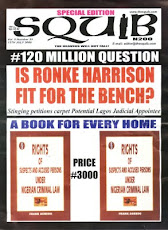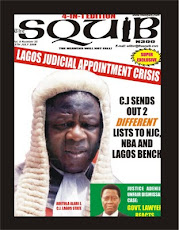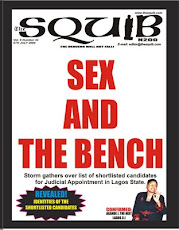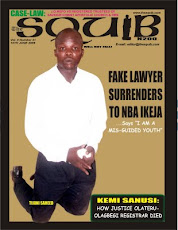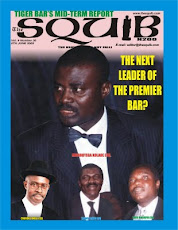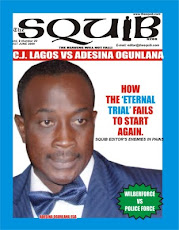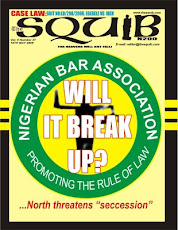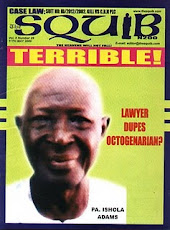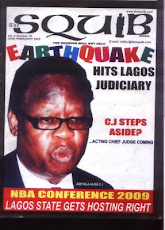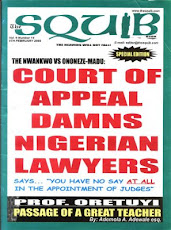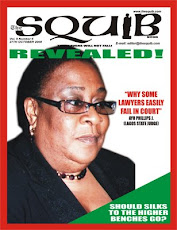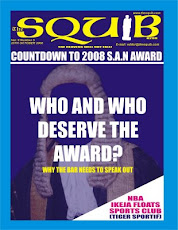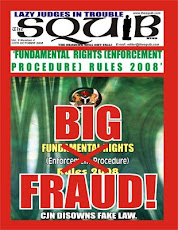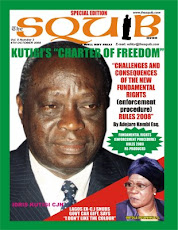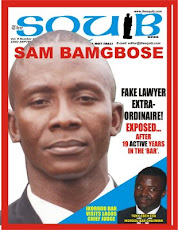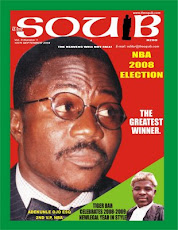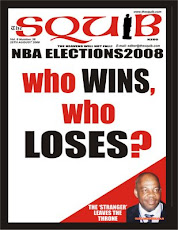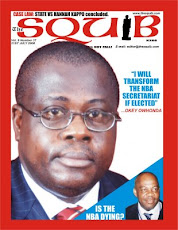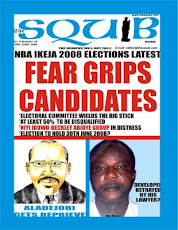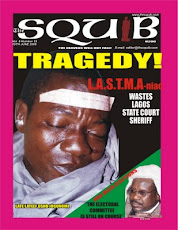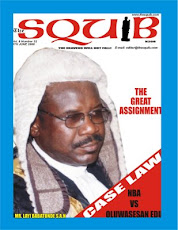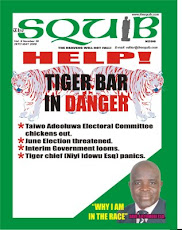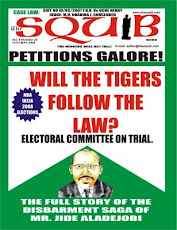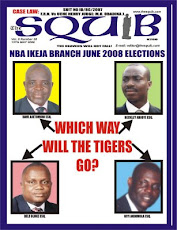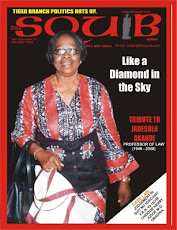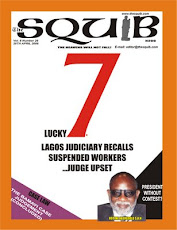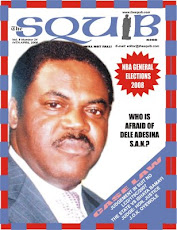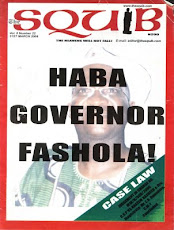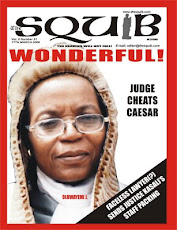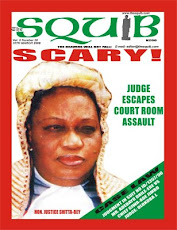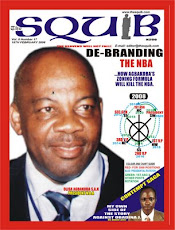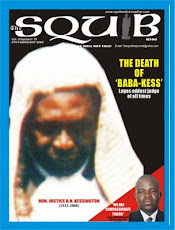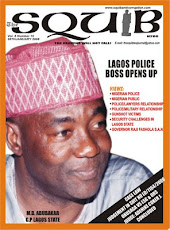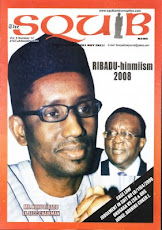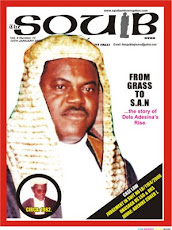
On Friday 28th August 2008, the most important event of the just concluded annual conference of the Nigerian Bar Association took place at the central venue, the International Conference Centre. That event was the inauguration of the newly composed 14 newly executive committee leadership of the association.
Just about five hundred spectators mostly made up of conferees themselves and conferee watchers, to wit, journalists. This number was about a twentieth fraction of the whole that had participated in the week-long-mis-managed ‘fiesta’.
Those who did not care to stay behind to watch the coronation of the new leaders should not be blamed. By the evening of the previous day, the hurly-burly of the elections of that day (28th August that produced the new-leaders had been done-winners and losers had been known via a neat, free, fair and open election.
In the said elections, four of the office holders were returned unopposed. Those were the ones who strolled, so to say, into power. They were Rotimi Akeredolu (SAN) President, Ganiyu Ajape (Welfare Secretary) Linda Bala (Legal Adviser) and Gbolahan Gbadamosi (Assistant Publicity Secretary). One of the ‘srollers’, Rotimi Akeredolu, strictly speaking did not actually stroll into power, he could be said to have sailed into power after employing a ‘puff-adder’ tactics to successfully scare off a potentially dangerous rival Dele Adesina SAN from squaring off with him in he ring. But that is a story (a sweet, educative one for that matter) for another day.
The remaining ten officers, to wit Ikeazor Akaraiwe (1st Vice-President), Adekunle Ojo (2nd Vice-President) Barth Aniche-Okoye (3rd Vice-President) Ibrahim Eddy Mark (General Secretary), Francis N. Ekwere (1st Assistant Secretary), Muheeb Komolafe (2nd Assistant secretary), Marc Enamhe (Financial Secretary) Steve Onyechi Ononye (Assistant Financial Secretary) Tess Morris-Okeke (Treasurer) and Murtala Oladimeji Abdul-Rasheed (Publicity Secretary) fought their way to power.
In this category of officers, some had easier wins than others. For example Tess Morris-Okeke roared to the Treasurer position with a whopping 746 Votes leaving her only rival, hapless Ike Uko with a miserable 269 votes. Marc Enamhe on his own part chinched the financial secretary post by separating himself from the loser, Adetutu Siyonbola with 78 votes (541 to 463). As for Steve Ononye he cut Adekunle Ajasa of the Ikeja bar to size with a comfortable lead margin of 407 to 358 votes while the Mathisis Aodokemba who came last got 239 votes. Also Barth Okoye (552) became the 3rd vice president at the expense of Bode Makinde (405) and Edith Adoh Ogbuta (69). Murtala Oladimeji defeated his closest rival with almost 200 votes. He scored 443 votes while Denis Agbaga 262, Nwanunu Ogbona 261 and Rommy Mums 22. For the post of 1st Vice President Blessing Ukiri got a hiding from Ikeazor Akaraiwe who polled 645 votes to Ukiri 316 votes.
It was different strokes for these four officers Adekunle Ojo (2nd Vice-President) Ibrahim Mark (Gen Secretary) and Moheeb Komolafe (2nd Assistant Secretary) and Francis Ekwere (1St Assistant Secretary). These four came to power almost by the skin of their teeth. Komolafe with 366 votes won the race to become the 2nd Assistant Secretary with only three votes as against Jonathan Ainerua who got 363 votes while Paul Abiala got 280 votes. Ibrahim Eddy Mark got the nod to legitimately parade himself as General Secretary with a mere 15 votes lead over his closest rival Okey Ohwonda who polled 402 votes. In that same contest Carol Ajie with 133 votes came with distant third, G.C. Igbokwe fourth with 48 votes Anthony Oka fifth with 27 votes. Adekunle Ojo in his own case led the pack with 317 votes defeating his closest rival Rueben James with a mere 30 votes, with Iniabasi Udobong came third with 240 votes, N.H Nwankwo fourth with 137 votes and C.A.C Uzoegwu fifth with 53 votes. As for Francis Ekwere he became 1st Assistant Secretary at the expense of Asafa Olalekan Yusuf his closest rival with only 36 votes scoring 417 to Yusuf’s 381. Joe Egwu came last in that race with 219 votes
In the considered opinion of this magazine Adekunle ojo was the greatest winner of the election. Yes he did not have the highest number of votes like Tess Morris-Okeke The treasurer or crushed a political giant, the way an Ikeazor Akariwe (1st Vice President) dismantled and demystified a valiant like Blessing Ukiri but Ojo’s victory was singular and unique in one significant regard-he won in defiance of the POLITICS OF TRIBALISM which ethnic irredentist groups like the Northern Lawyers Forum, Eastern Bar Forum and Egbe Amofin Yoruba (west) have glorified and regularly touted as the only sure-fire platform of gaining important political office, in the NBA at the national level.
Most of the leaders and promoters of these tribal irrendentist groups are elderly, relatively wealthy lawyers, thus the leadership characteristics of these groups are tribal, plutocratic and gerontocratic. A good number of the few younger lawyers who have roles to play in the leadership of the groups are essentially messengers and (ego) massagers of the “great, venerable ones”.
Taking advantage of the respect people have for their advanced age at the bar and in life as well their positions in life, leaders of tribal lawyers groups, in their enclaves make their preferences of available candidates and in almost feudal manner and method work to impose their preferences on the voters, working through the leadership of branches of the NBA in the respective regions. Since these irrendentist groups are sectional and tribal, the stark truth is that they are not nationalistic in outlook nor any great promoter of merit and are consequently and basically unprogressive. Of course it is highly anomalous to think of the groups as either reformatory or revolutionary.
Nonetheless because of their posturing as the king-makers of the NBA many a candidate crawls to them for support and blessing and bow out of contest, where they fail to get the support of the ‘ethnic irrendentist groups.’ So much in awe of the influence of these irredentist groups, that the incumbent president, Rotimi Akeredolu, a reputed fire-eater and a progressive not only found his way to the tribal power caucus in his ethnic base, (Egbe Amofin Yoruba) he so wormed his way into the heart of the leadership of the group that they declared him their sole candidate and scared off a ‘scareable’ contender, Dele Adesina SAN from the race completely even though Adesina was a foundation member of the Egbe. Not only that, Akeredolu in the thick of his puff-adder style campaign trumpeted it for all to hear that other irrendentist groups particularly “Eastern bar Forum have endorsed me!”
In this year's elections the only candidate in the big league who did not seek to actualize his ambition on the platform of tribal/regional approval was Adekunle Ojo, the incumbent 2nd Vice President. Arguably a candidate like Blessing Ukiri (1st Vice President) could be said to be in the same league but the important distinction was that while Ojo did not even attempt to seek approval of his political ambition from the Egbe Amofin Yoruba the irrendentist group in his area (west), Ukiri actually did that of his (Eastern Bar Forum) but only marched on defiantly after he failed to gain the support of the EBF.
In retrospect, it is doubtful that even if Ojo had sought the blessing of the Egbe Amofin, whether he would have received her blessing. Elated and gratified that the Egbe has produced the ‘President without opposition’ in the person of Rotimi Akeredolu SAN, the Egbe in their wisdom traded off all other big league posts (The three Vice-Presidencies and the General Secretary) to other regions. This predisposition was said to be based on the interest of the Egbe to see that the NBA leadership reflected federal character and balance.
Although even recent history taught otherwise, the Egbe had no interest in that aspect of history. In 2000 O.C.J Okocha SAN became president while General Secretary was Phillip Umeh. Both were South Eastherner Nigerians. In 2002, Wole Olanipekun SAN was president, Funke Adekoya SAN was 1st Vice-President, Dele Adesina was General Secretary. All of them were Yorubas and south Westerners and apparently the Heavens did not fall. That regime is still regarded as the best so far in the NBA since 1992.
In 2004-2005 both the president and 1st Vice-President Bayo Ojo and Lanke Odogiyan were not only Yorubas but both practiced in the North. In 2006-2008, the president, 1sdt vice president, 2nd vice-president (Agbakoba, George and Blessing Ukiri) are all South Easterners, with the 1st and 2nd vie-president from the same branch-PortHarcourt).
Holding to their interesting “federal spread” agenda, the Egbe Amofin Yoruba talked out Nurudeen Ogbara, the energetic and resourceful chairman of the NBA Ikorodu branch out of the contest for the position of Genral Secretary. Ogbara’s credentials count for nothing in the calculus of the Egbe, even though he is the only westerner in the race as the dynamics of politics go, had a fair chance of winning considering all the other contestant are South-Easterners.
For the same reason, the Egbe was not disposed to the candidacy of Adekunle Ojo in the 2nd Vice-President slot. However it would appear that the Egbe had some other reasons for their disapproval of Ojo’s candidacy.
At her meeting of the 26th August 2008, in Abuja, Ojo’s candidacy was an item of discussion. While nobody came out pointedly to ask Ojo to drop his ambition the Egbe would have felt better with his withdrawal from the race.
Curiously the Egbe openly and enthsiastically endorsed Bode Makinde, a Yoruba too, but of Yola Branch for the 3rd Vice-Presidency. According to the Egbe, the Northern caucus was promoting Makinde a Yoruba, as their candidate because he practiced in the North and in return was asking for support of the Egbe for their prime candidates, presumably Reuben James of Kaduna branch and Ibrahim Mark for General Secretary.
Of all the chieftains of the Egbe present at the meeting, it was only Mrs. Adekoya who spoke out clearly in favour of Ojo’s candidacy. “What have we got to lose if we support our own son, whom we know is a good material?” asked the lady. There was no clear answer to that plain and reasonable question.
On the 27th September 2007, the Egbe called another meeting of its chieftains and chairman of the various branches of the NBA in the West.
It was a meeting that clearly revealed the exclusive methodology of the Egbe. At the venue, the chieftains, about ten of them led by Chief Bamidele Aiku S.A.N huddled together in ‘tight’ conference while the chairmen were kept waiting and idling away, looking very inch like a corps of pressmen waiting for a post conference press briefing!
After the Egbe chieftains finished their meetings, the chairmen were called and a list of names of “approved” candidates for various pots under contention was released. The list included Adekunle Ojo’s name.
On the surface it appeared everything was okay but in reality the issue of Ojo’s candidacy was far from settled in the Egbe. The list actually was a dummy. Fortunately Ojo and his campaign organisation were not fooled.
They correctly smelled greater danger in the “approval” of the Egbe. A band of hardy, shrewd campaigners the Ojoists did not go home – rejoicing at the Egbe’s ‘approval’ of their candidate, but rather revived their campaign machine, the harder, so much so that as at 2.00a.m on the morning of the Election Day, they were searching reaching out to delegates, especially those from the Northern part of the country.
Ojo’s campaign effectively started middle of July 2008, at least two months late. The take-off was delayed by the succession crisis that rocked the Ikeja bar, Ojo’s home base at the tail end of the Niyi Idowu administration.
The problem was because the strongest political caucus in the Ikeja imploded and split into three factions. The biggest of the faction included Ojo and it was that faction that eventually carried the day, sweeping the polls completely, leaving not even crumbs for the vanquished opponents, their former comrades.
The victory was costly and took precious time. It was not until June 30 2008 that the new leadership of the Ikeja bar came on board; traditionally in the Ikeja bar, new leaderships emerge on the 1st Monday of the month of June.
Having secured the home base, the Ojoists threw their considerable energy into the quest to make Ojo become the 2nd Vice-President. Road campaigns were mounted ceaselessly into various parts of the country, such that within a space of three weeks, no less than five thousand kilometers were covered.
These campaigns were not quiet or lonely affairs. Believing the Adekunle Ojo was an excellent Tiger bar product, the Ojoist simply branded his candidacy as an Ikeja Bar Project.
To actualize the project, the Ojoists firmly in power in Ikeja donated completely the campaign veteran Adesina Ogunlana, Publisher of the Squib and Welfare Secretary of the bar to the Adekunle Ojo campaign organization as Chief, while other key members of the Executive, including the very chairman became members. More, the bus of the branch was thrown in as campaign material, and it was this branded vehicle that the Ojoists rode like a Bacephelaphus to the nooks and crannies of Nigeria in search of votes. It was clear that if the group had lost the struggle to provide the successor to the Niyi Idowu leadership the Ikeja bar, the funds also poured into the Ojo for 2nd Vice-President would have died ab ini tio war-chest of the Ojoists from open and secret friends and sympathisers of the group. The campaigners had an easy time selling their product in all their travels.
At the Onitsha NEC, Ojo had given a heart-warming performance at the speech-making programme for candidates. Even though he spoke for just about three minutes he had impressed many of his listeners as a bold, resourceful, pragmatic, “action man” who would do well in the 2nd Vice-President position.
But his Onitsha performance, scintillating as it was, it was a mere fillip. Ojo’s dues as a competent bar leader had been paid in those glorious years of his chairmanship of the Tiger Bar. It was a fact that so pro-active was the Ikeja bar under Ojo, than when he as chairman spoke, layman often thought it was the president of the NBA that was on the air.
Yet such a good hand, left to the Egbe should be rusticated and prevented from serving the NBA at a larger for a, to achieve a “federal spread”.
In the race for the 2nd Vice-President there were five candidates but only three – Ojo, Rueben Jame and Udobong had any real enhances of winning. The other two – N.H Nwankwo of Owerri branch and C.A.C Uzoegwu chances were chances were hopeless, as the Squib in its conference edition of 25th August 2008 correctly divined.
Of the three leading candidates only the one was not dependent on ethnic/regional support. Rueben James of the Kaduna branch relied heavily on block votes coming fromt eh North as well as alliance with the Egbe Amofuin – Yoruba, who clearly favoured the passive Northerner to the at first, that it was going to be a classic illustration of the Yoruba adage
“Kirakita o dola
Oluwa ni gbe ni gaa!”
After the voting, the sorting and counting of the ballot papers, took about ninety minutes. These ninety minutes were like ninety years, as victory only kissed Ojo’s fore-head, only about the last ten minutes.
Infact the very first thirty minutes were very bad as votes for Rueben James just kept tumbling. James’ pile continue to grow Yong Turk from Ikeja.
Iniabasi Udobong relied on block votes from the Eastern Region, courtesy of the Eastern Bar Forum which had adopted him. To his credit too, as better information later showed, he made some campaign outside his South-East base.
Ojo, the eventual winner of the contest was the only candidate who put his destiny and fortunes in the hands “of delegates wherever they can be found in Nigeria.”
To be sure, Ojo had the busier, paciest and the most frenetic campaign in the race, but on the actual day of voting, it appeared Bigger, falter and high while Ojo’s retained an embrassing dwarfish stature. For every single Ojo’s vote, six, even seven of Rueben James' would come in. It was a repeat of the famous 1999 Peoples Democratic Party’s primary Election Abuja of Obasanjo, Obasanjo, Obasanjo, Obasanjo, Obasanjo, Obasanjo, Obasanjo, Ekwueme”!
Adesina Ogunlana and Seyi Olawunmi, Ojo’s agents could not believe their eyes. It was not looking like a mere defeat for Ojo a humiliating rout of their candidate. And that certainly was not what they came there to meet.
At a point Ogunlana’s joke that there was too much tension in the atmosphere was confirmed by Linda Bala, Rueben James’ agent in a cool confident.
“There is no tension for me. I came here with faith and as you can see, my faith is working for me”!
And Ogunlana had no choice but to reply gamely “Time will tell” but the two Ojoists were only trying to hide their worst fears.
He remembered that two years ago, Ojo had lost out to Blessing Ukiri for the same position despite a brilliant and hard campaign. He remembered the lecture that he and Ojo had received from Niyi Akinlola SAN, just about an hour ago, while voting was in progress that it was unwise of anyone to disregard the wisdom and influence of the Egbe Amofin. Boasted the learned silk “We (Egb Amofin elders) are like the proverbial door- we see (into) the inside and of course we see (into) the outside. You have to understand the political arithmetic (of ethnicity) in the NBA”
He remembered the July 2008 warning of a Senior Progressive Bar Forum (Ojo’s political group in the NBA) there PBF members especially outside Ikeja that would work against Ojo’s interests in the election.
Half-way into the sorting of votes, the tide started slowly to turn against Rueben James. More and more votes began to pour in for both Ojo and Udobong. James’ leadership got arrested, than detained, while Ojo continued to catch up with him it was now Linda Balas’s turn to sweat and squirm.
Udobong’s pile too continued to rise but he was not too much of a threat to anybody.
Nobody knew exactly when James surrended his lead to Ojo but the important fact was that Ojo won. He snatched victory from the jaws of defeat, almost at the last minute.
It was one victory that clearly demistified and debarked the propaganda of the invicibility of regional/ethnic power caucuses, particularly the Egbe Amofin Yoruba.
For those who know their history the Egbe was actually a paper tiger and was paling into insignificance before the timidity of Dele Adesina S.A.N allowed the Egbe to produce a sensational coup of installing a so called “consensus” candidate the president of the Nigerian Bar Association in 2008 in the person of Mr. Rotimi Akeredolu SAN.
It is a historical fact that in 2004, the Egbe turned her back on Chief Bayo Ojo SAN, giving their support to A.B Mahmoud SAN of Kano. Mahmoud lost. In 2005, the Egbe was opposed to the emergence of Prince Lanke Odogiyon also a Yoruba, as president of NBA but the president became president.
In 2006, in a glaring case of inconsistency and contradiction, the Egbe had pioneered the controversial zoning formula lent their support to the Westerner, to Funke Adekoya’s (SAN) bid to become president even when the zoning formula favoured the East.
Of course, Adekoya came an embarrassing last in a race that on sheer merit, she was the best and most suitable. Egbe, Chief Aluko-Olokun S.A.N of the Kaduna branch. On Friday the 29th August 2008, the learned silk came to the International Conference Centre, obviously to attend the new leaders of the Association elected the previous day. There at the “verandah” of the ICC, he saw Adekunle Ojo receiving congratulations from friends and foes yesterday but friends today, alike. The old man moved over to Ojo and spoke these unforgettable lines:
"Ha, I campaigned against you yesterday. I campaigned o, but you won. This (your victory) could only be by God’s favour. That your God is powerful. Continue to worship Him. We worked against you because we were afraid that the Hausas will complain that they have no top-notcher in the new administration. But little did we know that even the Hausa people themselves would vote for you.
Now that you have won, we should accept it as the wish of God."













